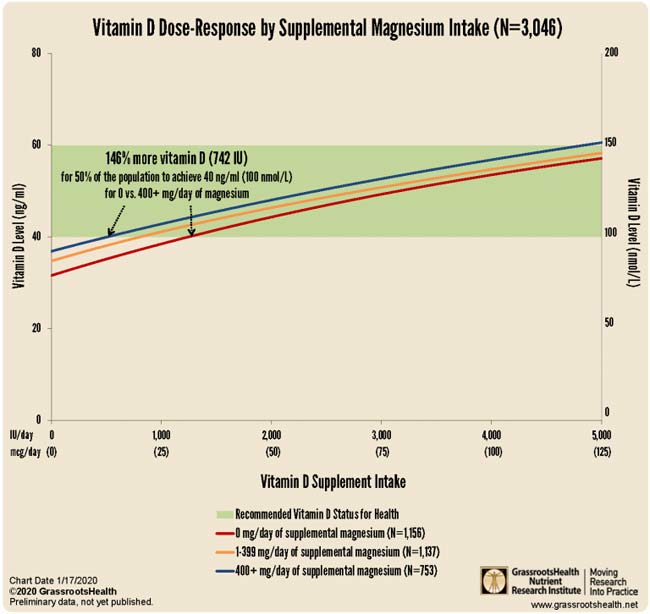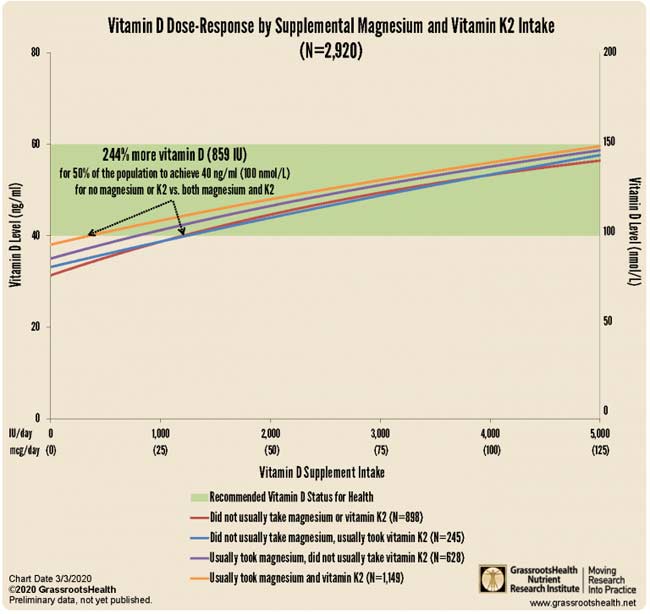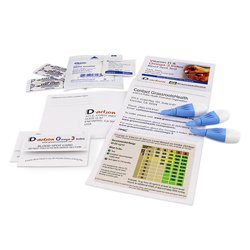UK Authorities Shut Down Vitamin D Recommendation for COVID
Analysis by Dr. Joseph Mercola
've written many articles detailing the roles vitamin D plays in COVID-19, from how it can help prevent initial infection, to how it can reduce your risk of complications and death. One of the reasons I've been pushing for vitamin D optimization as a way to minimize the risks associated with this infection is because the evidence for it is overwhelming.
British Health Authorities Disparage Vitamin D Claims
British health authorities, however, disagree.1 According to new COVID-19 guidance2 from the National Institute for Health and Care Excellence (NICE), Public Health England and the Scientific Advisory Committee on Nutrition (SACN), there's insufficient evidence to support the recommendation to take oral vitamin D for the sole reason of preventing or treating COVID-19.
With that, they are backtracking on previous recommendations issued by British health officials who, in November 2020, urged people to take supplemental vitamin D this winter to reduce their risk of respiratory infections, including COVID-19.3
What's more, while the new guidance does urge Britons to take a vitamin D supplement between October and March, it only recommends a dose of 400 IUs a day, which is easily 10 times lower than what most people would require for general health and immune function.
While the panel agreed low vitamin D was associated with more severe COVID-19 outcomes, they claim it's impossible to confirm causality due to inconsistencies between the studies (such as dosing, setting, populations, duration and definitions of outcomes), and because vitamin D deficiency and severe COVID-19 share many of the same risk factors.
According to professor Ian Young, who chairs SACN, "This evidence review confirms that currently there is not enough available evidence to determine that there is a causal relationship between vitamin D and COVID-19."
However, if vitamin D deficiency and COVID-19 share the same risk factors, wouldn't it make more sense to urge people to address their vitamin D deficiency instead of using this as a justification for why vitamin D supplementation cannot be recommended?
It's really hard to imagine that scientists with a genuine concern for public health would come out with this kind of guidance, especially when you consider that vitamin D supplementation — at whatever dosage required to get your blood level above 40 ng/mL (100 nmol/L) — won't make your health any worse. There's absolutely no downside to it.
Vitamin D Is Important for Optimal Immune Function
In the video above, Dr. Roger Seheult reviews how vitamin D works, and the benefits of vitamin D, both for respiratory infections in general and as it pertains to COVID-19.
Importantly, vitamin D is a steroid hormone that can pass through cellular membranes into the nucleus and controls the expression of genes. So, it's not just a mere vitamin required as a cofactor. It can actually modify how the cells in your body behave and function.
Vitamin D receptors are found in a large number of different tissues and cells, including your immune cells. This means vitamin D plays an important role in your immune function specifically. If vitamin D is lacking, your immune system will be impaired, which in turn makes you more susceptible to infections of all kinds. As noted by Seheult, vitamin D:
- Stimulates "the innate immune response, which provides frontline protection against infectious agents"
- Increases expression of antimicrobial peptides in your monocytes and neutrophils — both of which play important roles in COVID-19
- Enhances expression of an antimicrobial peptide called human cathelicidin, "which is of specific importance in host defenses against respiratory tract pathogens"
Vitamin D for COVID-19
While Seheult also reviews a number of studies looking at vitamin D in relation to respiratory illnesses other than COVID-19, SARS-CoV-2-specific investigations have found:
• COVID-19 is far more common in vitamin D deficient individuals — In one study,4,5,6 82.2% of COVID-19 patients tested were deficient in vitamin D, compared to 47.2% of population-based controls. (Mean vitamin D levels were 13.8 ± 7.2 ng/ml, compared to 20.9 ± 7.4 ng/ml in controls.)
They also found that blood levels of vitamin D inversely correlated to D-dimer levels (a measure of blood coagulation). Many COVID-19 patients have elevated D-dimer levels, which are associated with blood clots.
• Vitamin D status influences COVID-19 severitys — COVID-19 patients who have higher vitamin D levels tend to have milder illness and better outcomes. One study7,8 found the risk of severe COVID-19 and related deaths virtually disappeared when vitamin D levels were above 30 ng/mL (75 nmol/L).
In another study,9 COVID-19 patients with a vitamin D level between 21 ng/mL (50 nmol/L) and 29 ng/mL (75 nmol/L) had a 12.55 times higher risk of death than those with a level above 30 ng/mL. Having a level below 20 ng/mL was associated with a 19.12 times higher risk of death.
My scientific review,10 "Evidence Regarding Vitamin D and Risk of COVID-19 and Its Severity," published October 31, 2020, also lists data from 14 observational studies that show vitamin D blood levels are inversely correlated with the incidence and/or severity of COVID-19.
This makes sense when you consider that vitamin D regulates inflammatory cytokine production — a lethal hallmark of COVID-19 — and is an important regulator of your immune system. Dysregulation of the immune system is another hallmark of severe COVID-19.
Seheult also reviews studies showing COVID-19 outcomes appear to be linked to UVB exposure. For example, in one such study,11 they found a marked variation in mortality depending on whether the patients lived above or below 35 degrees North latitude. As noted by the authors:12
" … the hypothesis is not that vitamin D would protect against SARS‐CoV‐2 infection but that it could be very important in preventing the cytokine storm and subsequent acute respiratory distress syndrome that is commonly the cause of mortality."
Now, as noted by Seheult, it's also possible that COVID-19 itself might be the cause of the lower vitamin D levels seen in these patients. This was reviewed in a letter to the editor, titled, "Vitamin D Deficiency in COVID-19: Mixing Up Cause and Consequence," published in Metabolism: Clinical and Experimental, November 17, 2020.13 What they found was that as plasma cytokine levels increased in COVID-19 patients, vitamin D levels modestly dropped.
• Vitamin D influences infection risks — Vitamin D has also been linked to a lower risk of testing positive for COVID-19 in the first place.
The largest observational study14 to date, which looked at data for 191,779 American patients, found that of those with a vitamin D level below 20 ng/ml (deficiency), 12.5% tested positive for SARS-CoV-2, compared to 8.1% of those who had a vitamin D level between 30 and 34 ng/ml (adequacy) and 5.9% of those who had an optimal vitamin D level of 55 ng/ml or higher. According to the authors:
"SARS-CoV-2 positivity is strongly and inversely associated with circulating 25(OH)D levels, a relationship that persists across latitudes, races/ethnicities, both sexes, and age ranges."
How to Improve Your Vitamin D Absorption
The specific dosage required to maintain an optimal vitamin D level can vary widely from person to person depending on a variety of factors, including age and weight. Your gut health can also play an important role in how well you absorb the vitamin D you take, according to recent research.15
When you have a healthy gut, beneficial bacteria produce butyrate by breaking down dietary fiber. Butyrate, in turn, helps increase vitamin D, so the more butyrate you have, the more vitamin D your body can absorb.
Another factor that can influence your vitamin D absorption is your magnesium level.16 Magnesium is required for the conversion of vitamin D into its active form.17,18,19,20 According to a scientific review21,22 published in 2018, as many as 50% of Americans taking vitamin D supplements may not get significant benefit as the vitamin D simply gets stored in its inactive form, and the reason for this is because they have insufficient magnesium levels.
More recent research by GrassrootsHealth23 shows you need 146% more vitamin D to achieve a blood level of 40 ng/ml (100 nmol/L) if you do not take supplemental magnesium, compared to taking your vitamin D with at least 400 mg of magnesium per day.

Your vitamin K2 intake can also affect your required vitamin D dosage. According to GrassrootsHealth,24 "combined intake of both supplemental magnesium and vitamin K2 has a greater effect on vitamin D levels than either individually," and "those taking both supplemental magnesium and vitamin K2 have a higher vitamin D level for any given vitamin D intake amount than those taking either supplemental magnesium or vitamin K2 or neither."
Data25 from nearly 3,000 individuals revealed 244% more oral vitamin D was required to get 50% of the population to achieve a vitamin D level of 40 ng/ml (100 nmol/L) if they weren't concurrently also taking magnesium and vitamin K2.

Safeguard Your Immune System With Vitamin D
In summary, if you cannot get sufficient amounts of sun exposure to maintain a vitamin D blood level of 40 ng/mL (100 nmol/L) to 60 ng/mL (150 nmol/L), a vitamin D3 supplement is highly recommended. Just remember that the most important factor here is your blood level, not the dose, so before you start, get tested so you know your baseline.
This will help you determine your ideal dose, as it can vary widely from person to person. Also remember that you can minimize your vitamin D requirement by making sure you're also getting enough magnesium and vitamin K2. I'm convinced optimizing your vitamin D can go a long way toward minimizing your chances of contracting a respiratory infection, be it the common cold, seasonal influenza or COVID-19.
If you live in the northern hemisphere, now is the time to check your vitamin D level and start taking action to raise it if you're below 40 ng/mL (100 nmol/L). Experts recommend a vitamin D level between 40 and 60 ng/mL (100 to 150 nmol/L).
An easy and cost-effective way of measuring your vitamin D level is to order GrassrootsHealth's vitamin D testing kit. Also, if you haven't already visited www.stopcovidcold.com please do so now so you can take your free COVID risk test and grab a free PDF copy of my vitamin D report.
Once you know your current vitamin D level, use the GrassrootsHealth vitamin D calculator26 to determine how much vitamin D you might need to reach your target level. Retest your vitamin D level in three to four months to make sure you've reached your target level. If you have, then you're taking the correct dosage. If you're still low (or have reached a level above 80 ng/mL), you'll need to adjust your dosage accordingly and retest again in another three to four months.

A growing body of evidence shows that vitamin D plays a crucial role in disease prevention and maintaining optimal health. There are about 30,000 genes in your body, and vitamin D affects nearly 3,000 of them, as well as vitamin D receptors located throughout your body.
For a more detailed and comprehensive analysis of the connection of vitamin D and COVID-19, please review the report I created that could be used to address any health care professionals who would disagree with this recommendation. Also included is a shortened version of the document which will be better to educate those that you would like to convince of the importance of getting your vitamin D levels optimized.

Vitamin D Helps Protect Against Cancer and Other Diseases
According to one large-scale study, having optimal vitamin D levels can slash your risk of cancer and can help prevent at least 16 different types of cancer, including pancreatic, lung, ovarian, prostate and skin cancers.
Vitamin D from sun exposure also radically decreases your risk of autoimmune diseases such as multiple sclerosis (MS) and Type 1 diabetes. Sun exposure also helps prevent osteoporosis, which is a significant concern for women in particular.
Magnesium Is Necessary to Activate Vitamin D
Since over half the population does not get enough magnesium and far more are likely deficient, magnesium supplementation is recommended when taking vitamin D supplements. This is because magnesium helps to activate vitamin D, as the enzymes that metabolize vitamin D in your liver and kidneys require magnesium.
What GrassrootsHealth observed in testing and analyzing nutrient intakes from over 15,000 patients is that about half of those taking vitamin D supplements were unable to normalize their vitamin D levels until they started to take supplemental magnesium.
They also found that those who do not take supplemental magnesium need, on average, 146% more vitamin D per day to achieve a healthy blood level of 40 ng/ml (100 nmol/L), compared to those who take at least 400 mg of magnesium along with their vitamin D supplement.
Omega-3 Fats Are Crucial to Your Well-Being
Meanwhile, recent research suggests high doses (4 grams) of the omega-3 fats EPA and DHA may help improve healing after a heart attack. Other benefits of omega-3 fats include prevention of lupus and Parkinson’s disease, decreased anxiety, healthier and stronger bones, as well as fighting fats in the body.
However, you can’t tell by looking in a mirror if you are deficient in vitamin D, magnesium or omega-3s. The only real way to know if you are deficient in these nutrients is to get tested.
How Much Vitamin D Should You Take
If you know your vitamin D level you can use the calculator below to find the best dose to take.
Vitamin D*calculator™
Need more help on what to do with your D calculator results? Read here
© 2020 GrassrootsHealth
If you are unable or unwilling to get a vitamin D test, they have found that the average dose to achieve a healthy vitamin D level of 40 ng/ml is about 8,000 units per day. If you are underweight you will want to reduce this dose to 6-7,000 units per day as heavier people tend to need more vitamin D.
How to Test Your Levels
I'm really pleased GrassrootsHealth Nutrient Research Institute has expanded its research projects to include a range of different tests, seeing how deficiency may be needlessly affecting the health of so many. Like its Vitamin D*action Project, the Magnesium*PLUS Focus Project will allow us all to take action on known science with a consensus of experts without waiting for institutional lethargy.
The Vitamin D*action Project has truly demonstrated the value measurement can have on public health, and there’s no doubt in my mind that the Magnesium*PLUS Focus Project will have the same impact. As in earlier projects, once the study of a community is completed, all that information can be used to push for public health recommendations that will benefit everyone.
You have the ability to participate in a variety of different tests, including:
- Vitamin D
- Vitamin D and Omega 3
- Vitamin D, Omega 3 and Magnesium
Vitamin D, Magnesium & Omega 3 PLUS Elements. Remember, by participating in this public research project, you not only are identifying your own levels, but allowing yourself to make decisions about your diet and supplements to improve your health.
Your data (which is anonymous) will also help GrassrootsHealth researchers to determine the ideal levels for the prevention of various diseases, and what kind of dose-response relationship exists among the general population.
With the data from this project, individuals will be able to see what works for them, and, researchers will be able to demonstrate just to what extent health care costs may be reduced simply by getting people into an optimal range.
This article was brought to you by Dr. Mercola, a New York Times bestselling author. For more helpful articles, please visit Mercola.com today and receive your FREE Take Control of Your Health E-book!
Be the first to comment.
Blogger's note: subterrnews.blogspot.com does not send cookies, or collect any information on those using the blog. However, the blogspot is on google, and google may collect information, and send cookies. Many of the links that we connect to do not send out cookies or collect information, but some do. You are keying in to this blog, and you have agreed to this.
The views expressed in the articles do not necessarily represent the opinions of this blog. They are the views, and opinions of the author(s) of the article.



0 comments:
Post a Comment